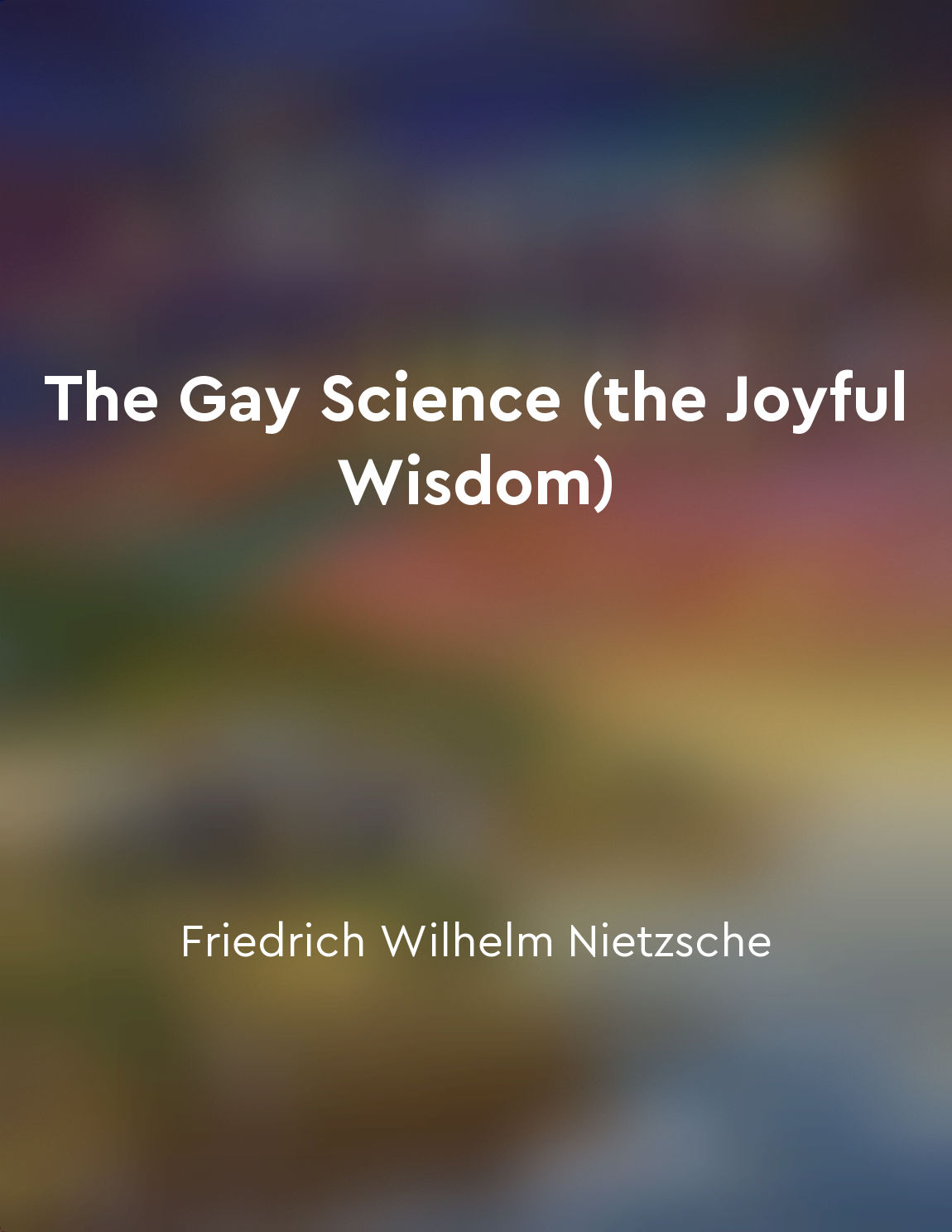We are members of multiple moral communities from "summary" of The Righteous Mind by Jonathan Haidt
In our daily lives, we often interact with a variety of individuals who belong to different social groups. These groups can range from our families and friends to our coworkers and fellow citizens. Each of these groups has its own set of values, norms, and beliefs that shape the way its members perceive the world around them. As individuals, we are constantly navigating these different moral communities and adapting our behavior accordingly. This concept of belonging to multiple moral communities is at the heart of our social interactions and relationships. When we interact with others who share the same values and beliefs as us, we feel a sense of belonging and camaraderie. On the other hand, when we come into contact with individuals from different moral communities, we may experience conflict or tension as we try to reconcile our differences. One of the key insights...Similar Posts

Embrace the unknown
One must be willing to embrace the unknown with open arms, for it is in the unknown that true growth and discovery lie. The fam...

Human nature is complex and contradictory, defying easy categorization
Human nature, that mysterious and enigmatic force that drives our thoughts and actions, is a concept that has puzzled philosoph...
Seek to understand the lessons behind challenges and hardships
When you face challenges and hardships in life, it is easy to feel discouraged and overwhelmed. It may seem like these obstacle...

Theism and atheism are both based on beliefs that cannot be proven
The belief in a god or gods, commonly referred to as theism, is a concept that has been ingrained in human society for centurie...

Stand up for what you believe in
In a world that thrives on conformity and obedience, standing up for what you believe in can be a radical act of defiance. It r...
True freedom comes from selfawareness
In describing the concept of freedom, it is essential to recognize that true freedom can only be achieved through self-awarenes...
The endowment effect skews perceptions of value
The endowment effect is a curious phenomenon that reveals how people often overvalue objects simply because they own them. This...

Collective action can address global challenges
In the face of global challenges like climate change, pandemics, and technological disruptions, individual countries often stru...
The youth are the future leaders of the revolution
The future of any revolution lies in the hands of the youth. It is the young people who have the passion, energy, and idealism ...

Standing up for one's beliefs is honorable
Holding fast to one's convictions is a virtue that has been celebrated throughout history. It is a testament to one's character...
